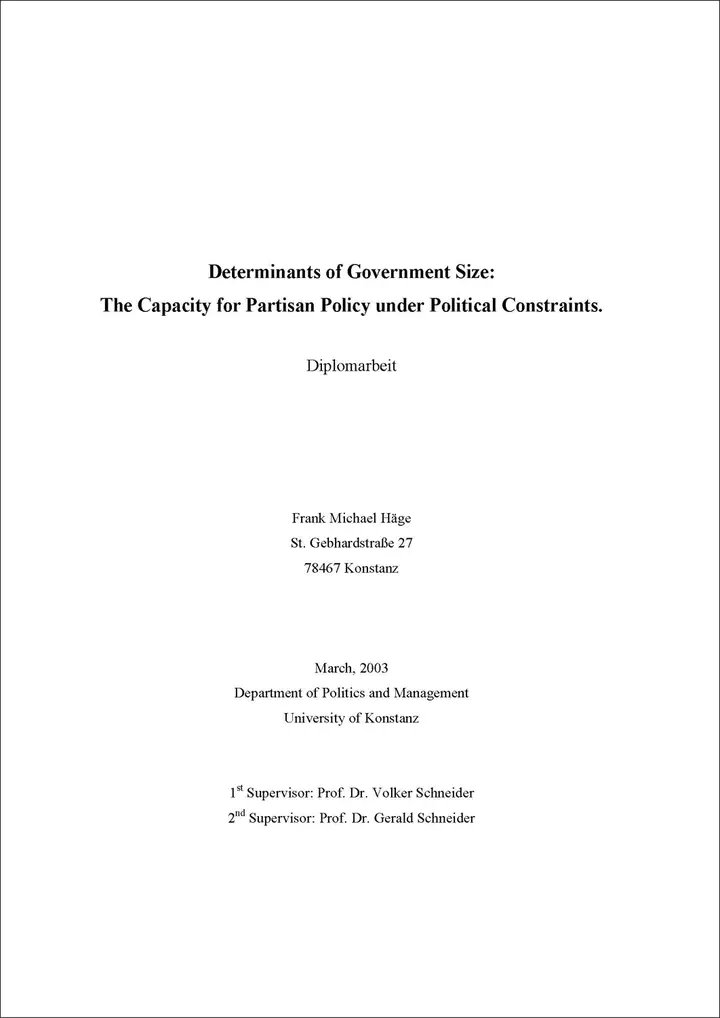Determinants of Government Size: The Capacity for Partisan Policy under Political Constraints

Abstract
This paper examines the influence of government ideology on public sector size through a statistical analysis of pooled time-series and cross-section data for 16 industrialized democracies over the time period from 1965 to 1994. It improves on previous research on the topic in various respects.
Conceptually, it takes into account two factors potentially mediating the relationship between government ideology and public sector size, i.e. political institutions and the system of interest intermediation. Methodologically, it employs a continuous ideology measure which varies not only within party families, but also over time.
The results of the analysis suggest that the influence of ideology generally decreased over time. But the strength of the effect also varied according to the specific indicator of government size examined. While ideology is less related to the funding of public services, as measured in terms of government spending, the extent of direct provision of these services through public employees is highly dependent on the ideological orientation of government. Furthermore, whereas no interaction effects are identified in the analysis of government expenditure, the effect of government ideology on public employment increases with the degree of corporatism and decreases with the number of veto players.
In conclusion, it seems that ideological differences revolve more around the means of public service provision rather than its scope, and, not surprisingly, that structural context factors are more important where the level of ideological conflict is high.